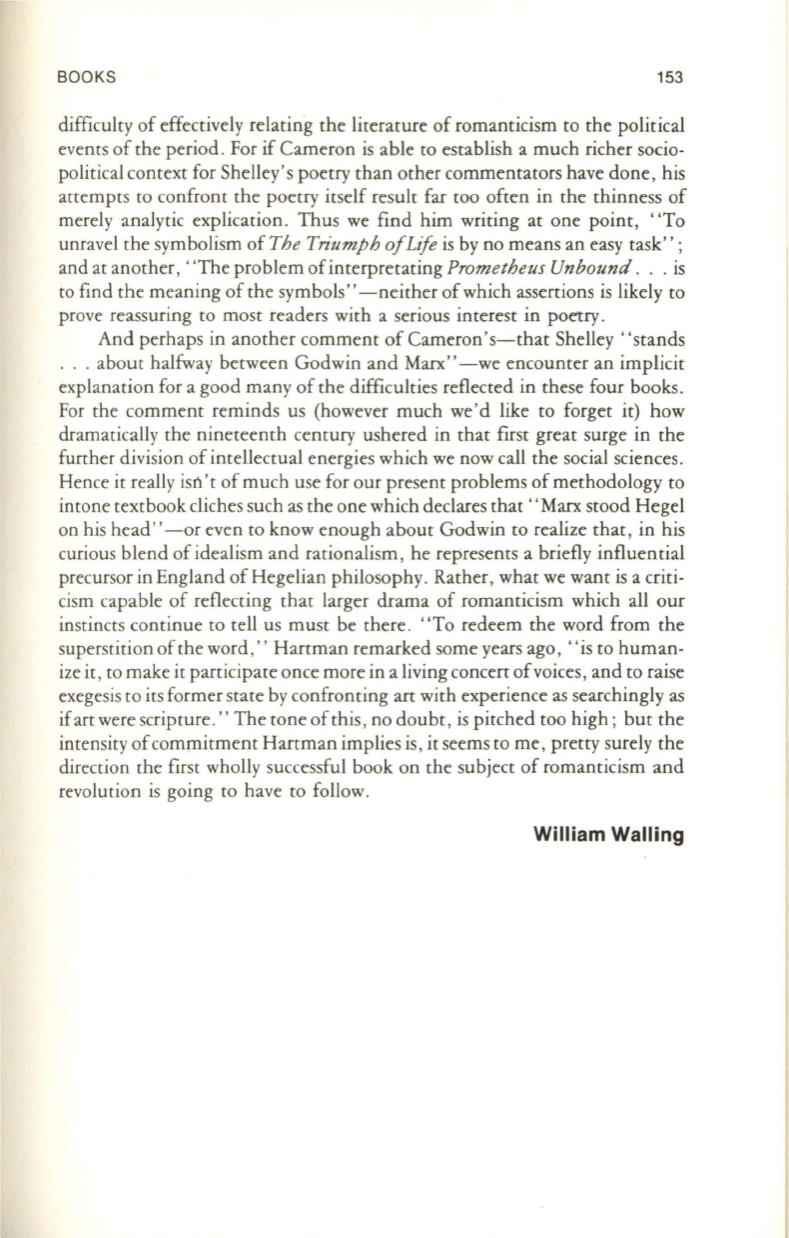
BOOKS
153
difficulty of effectively relating the literature of romanticism
to
the political
events of the period. For if Cameron is able
to
establish a much richer socio–
political context for Shelley's poetry than other commentators have done, his
attempts to confront the poetry itself result far too often in the thinness of
merely analytic explication . Thus we find him writing at one point, "To
unravel the symbolism of
The Triumph ofLtfe
is by no means an easy task" ;
and at another, "The problem ofinterpretating
Prometheus Unbound .
..
is
to find the meaning of the symbols" -neither of which assertions is likely to
prove reassuring to most readers with a serious interest in poetry.
And perhaps in another comment of Cameron's-that Shelley' 'stands
.. . about halfway between Godwin and Marx" -we encounter an implicit
explanation for a good many of the difficulties reflected in these four books.
For the comment reminds us (however much we'd like to forget it) how
dramatically the nineteenth century ushered in that first great surge in the
further division of intellectual energies which we now call the social sciences.
Hence it really isn't of much use for our present problems of methodology to
intone textbook cliches such as the one which declares that" Marx stood Hegel
on his head' ,-or even to know enough about Godwin to realize that, in his
curious blend of idealism and rationalism , he represents a briefly influential
precursor in England of Hegelian philosophy. Rather, what we want is a criti–
cism capable of reflecting that larger drama of romanticism which all our
instincts continue to tell us must be there . "To redeem the word from the
superstition of the word, " Hartman remarked some years ago, "is to human–
ize it, to make it participate once more in a living concert of voices, and to raise
exegesis to its former state by confronting art with experience as searchingly as
if art were scripture." The tone of this, no doubt, is pitched too high; but the
intensity ofcommitment Hartman implies is, it seems to me, pretty surely the
direction the first wholly successful book on the subject of romanticism and
revolution is going to have to follow.
William Walling


